By Hussaini Garba Mohammed
In an interview with Dr. Kazeem Olalekan Aremu, a Nigerian-born mathematician, he shared insights about his academic journey. Dr. Aremu received his B.Sc. and M.Sc. degrees in Mathematics from Usmanu Danfodiyo University, Sokoto in 2011 and the University of Ibadan in 2016, respectively. He later earned his Ph.D. in Mathematics from the University of KwaZulu-Natal, South Africa in 2021.
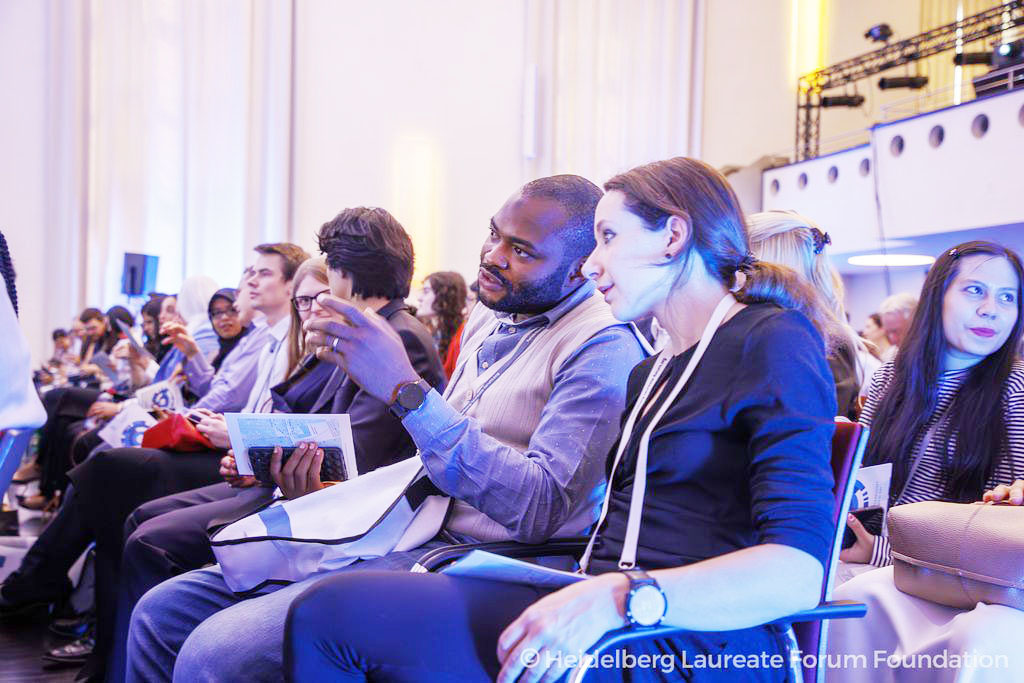
Dr. Aremu spoke during the 11th Heidelberg Laureate Forum, which took place from September 22 to 27, 2024. The HLF organizers annually invite recipients of the most prestigious awards in Mathematics and Computer Science—including the Abel Prize, ACM A.M. Turing Award, ACM Prize in Computing, Fields Medal, IMU Abacus Medal, and Nevanlinna Prize—to participate as Laureates. These distinguished individuals exchange ideas with over 200 of the brightest young researchers from various universities and countries, fostering an open and interdisciplinary dialogue.
During the interview, Dr. Aremu elaborated on how his diverse research interests have led him to participate in numerous conferences and excel in his profession as a Mathematician. His research areas include nonlinear optimization theory and computational graph theory.
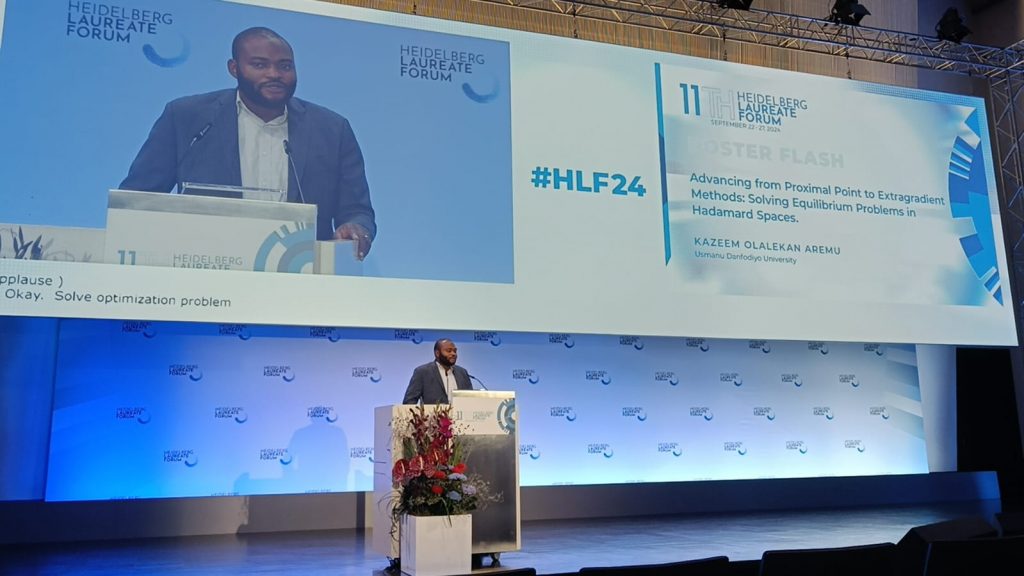
1. Can you please introduce yourself and how you were selected among the young researchers to be at this wonderful event HLF 2024 to us?
I am Dr. Kazeem Olalekan Aremu, a senior lecturer in the Department of Mathematics at Usmanu Danfodiyo University, Sokoto, Nigeria. The Heidelberg Laureate Forum (HLF) is one of the most prestigious scientific gatherings, and many young researchers, like myself, aspire to participate. I first applied to HLF in 2020 during the final stage of my PhD but was not selected. However, I used that as a learning experience, refined my application and motivation letter, and on my second attempt, I was fortunate to be selected for this incredible opportunity.
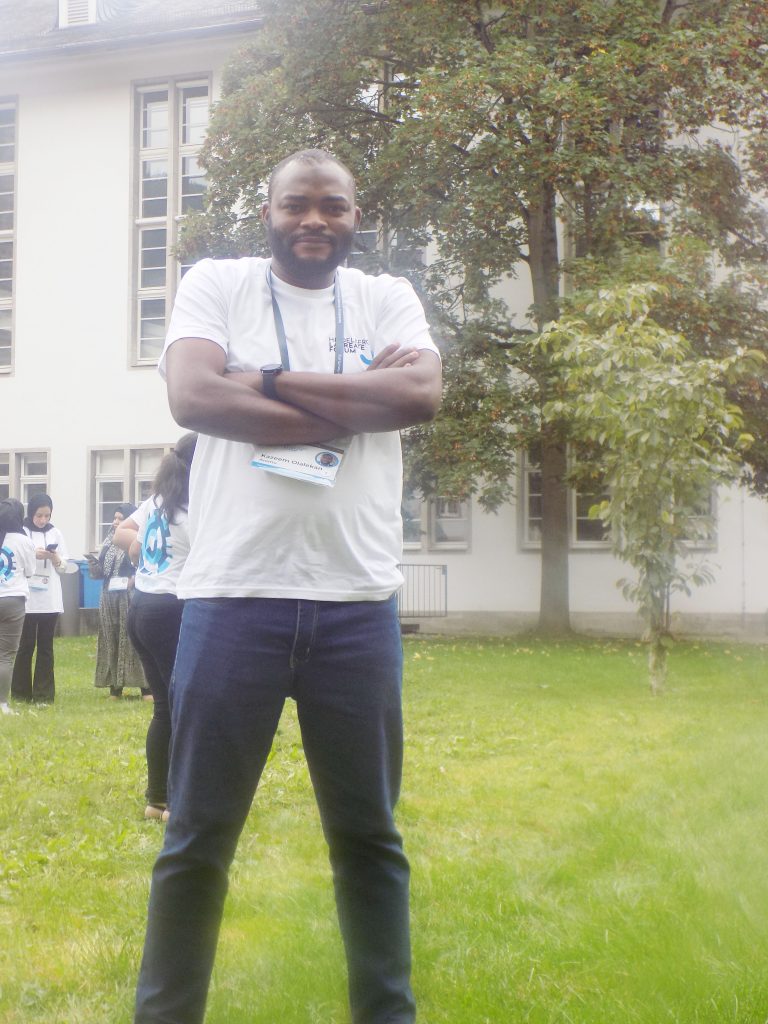
2. What are the benefits of performing research at the younger age? What did you not expect?
Research at any stage of life is enriching, provided one is passionate about their work. However, during one’s youth, the energy, enthusiasm, and curiosity for discovering new scientific insights are often at their peak. These qualities are crucial for productive research, as they drive persistence and creativity in solving complex problems. Engaging in research at a young age also offers the opportunity to cultivate strong analytical and critical thinking skills that can be applied in various aspects of life and career.
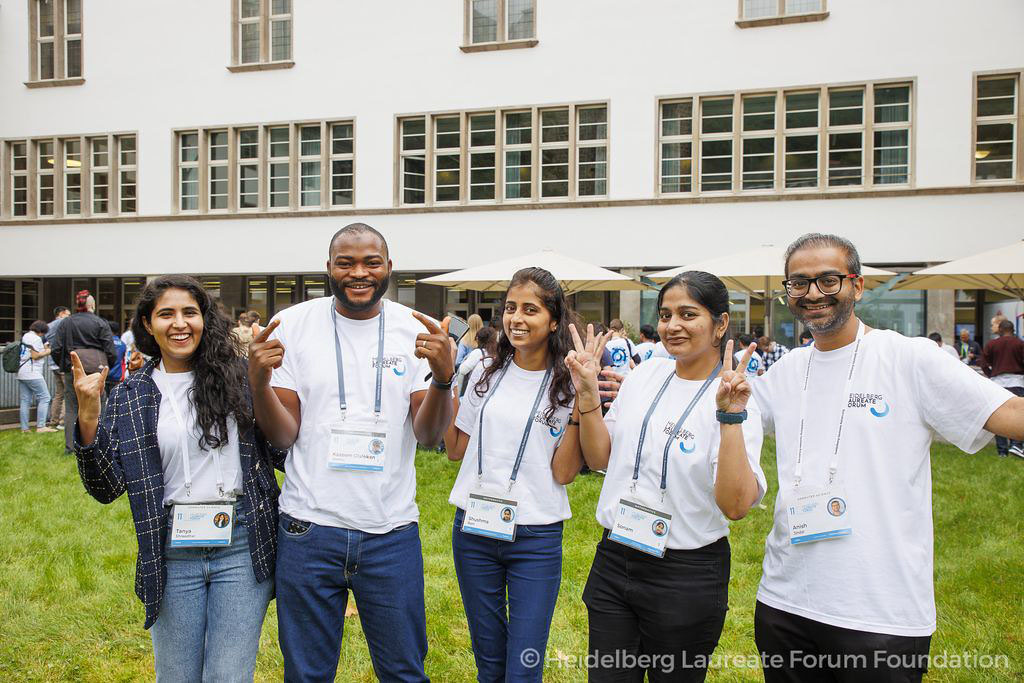
I have found that being deeply passionate and fully immersed in research often leads to unexpected rewards. Beyond academic achievements, young researchers frequently encounter opportunities for collaboration with experts in their field, which broadens their perspectives and accelerates their learning. Additionally, the challenges and successes encountered in research contribute to personal growth, resilience, and a sense of fulfillment that goes beyond traditional academic experiences. Most importantly, early involvement in research fosters the habit of lifelong learning and continuous self-improvement—traits that are invaluable throughout one’s career and personal life.
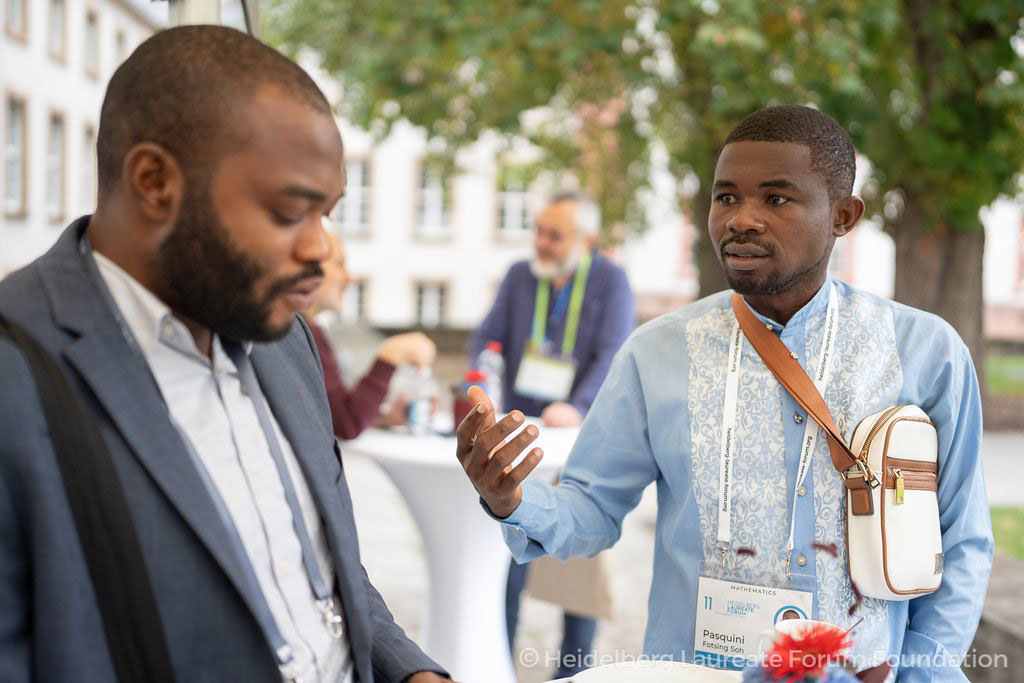
3. How many on-going projects are you working on that will help you to a higher level?
I am currently engaged in two primary research areas: nonlinear optimization theory and computational graph theory. Firstly, I am working on a number of nonlinear optimization projects with applications to machine learning. Additionally, I lead a research group at Usmanu Danfodiyo University focusing on optimization and computational graph theory. Our aim is to classify and predict the physical properties of drugs using graph topological indices combined with machine learning algorithms.
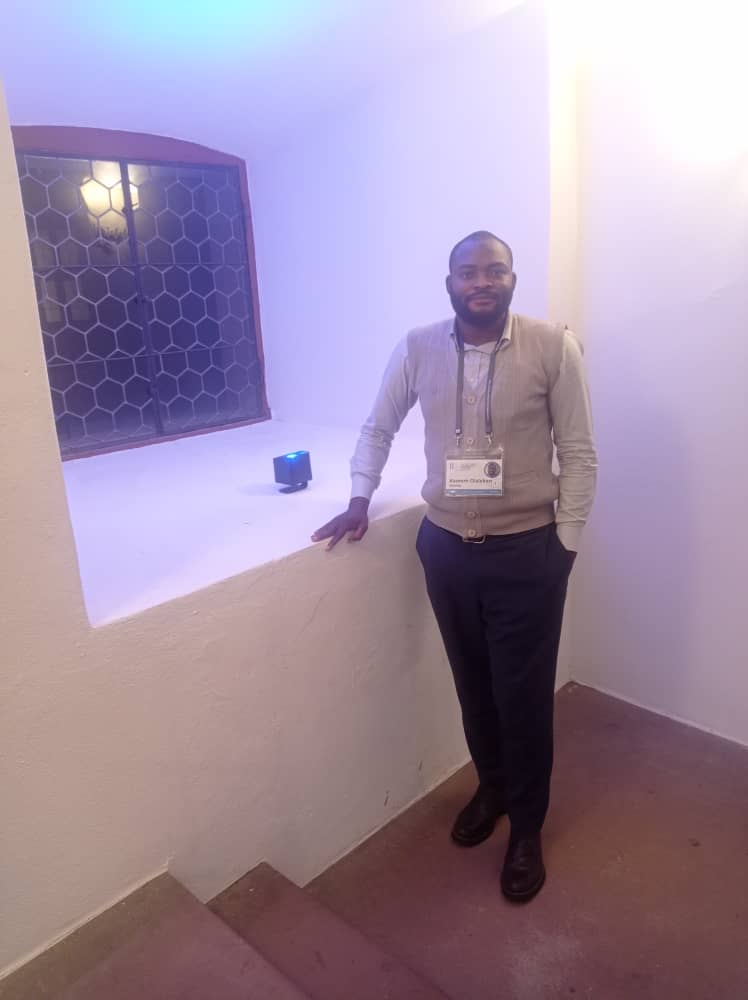
4. How many countries have you traveled to carry out your research or attended an international conference in in the last 5 years?
I have traveled to South Africa and Germany for research collaborations and to attend international conferences.

5. Do you have any tips for those who are now thinking about a career in scientific research?
First and foremost, ensure that you genuinely enjoy what you do, as this passion will fuel your commitment. Combine that passion with discipline, perseverance, and the pursuit of excellence, and you’ll find success in scientific research.
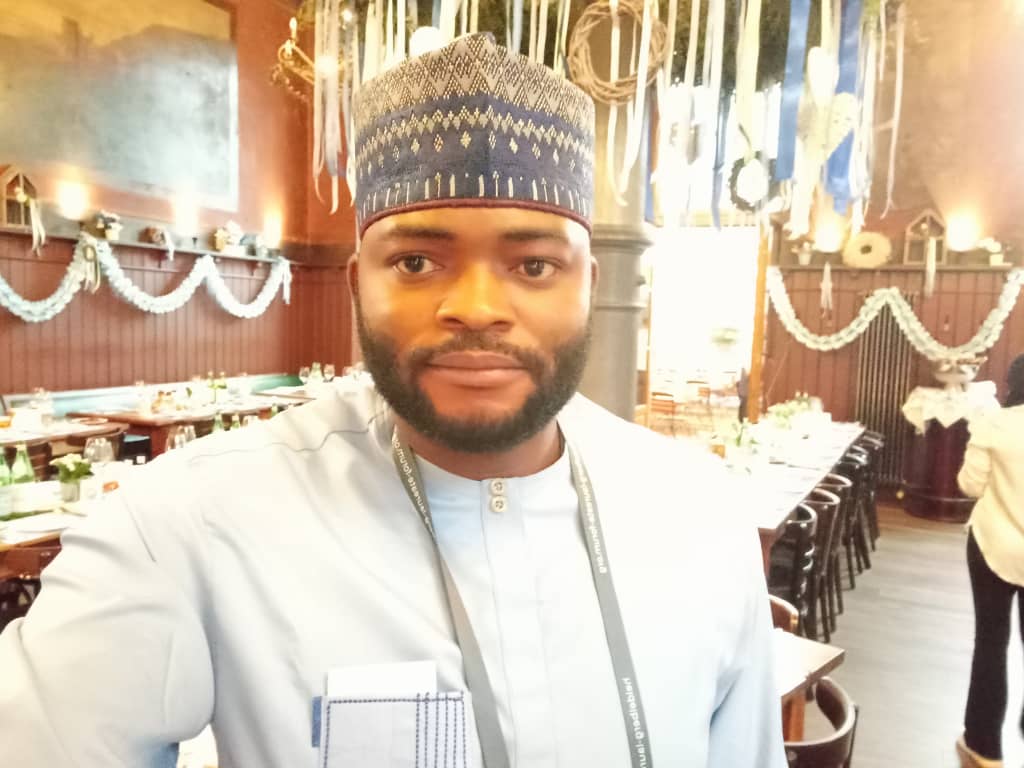
6. How do you become a mathematician considering that a lot of students in secondary school don’t like math’s as a subject, and what advice do you have for Nigerian students who want to be like you?
Would you be surprised to know that I never intended to become a mathematician? In fact, I initially dreamt of becoming a medical doctor or a geophysicist during my high school years. These were the courses I alternated between for about five years while writing the JAMB exams (now UTME). However, after facing some challenges with university admissions, I received advice from an older family friend, Tajudeen Abdulwahab, an economist, who encouraged me to study Mathematics just around the time I was completing my National Diploma (OND) in Computer Science from Kwara State Polytechnic, Ilorin, Kwara State. Alhamdulillah, his advice led me to mathematics, and I owe him a great deal of gratitude for that singular act of mentorship and guidance.
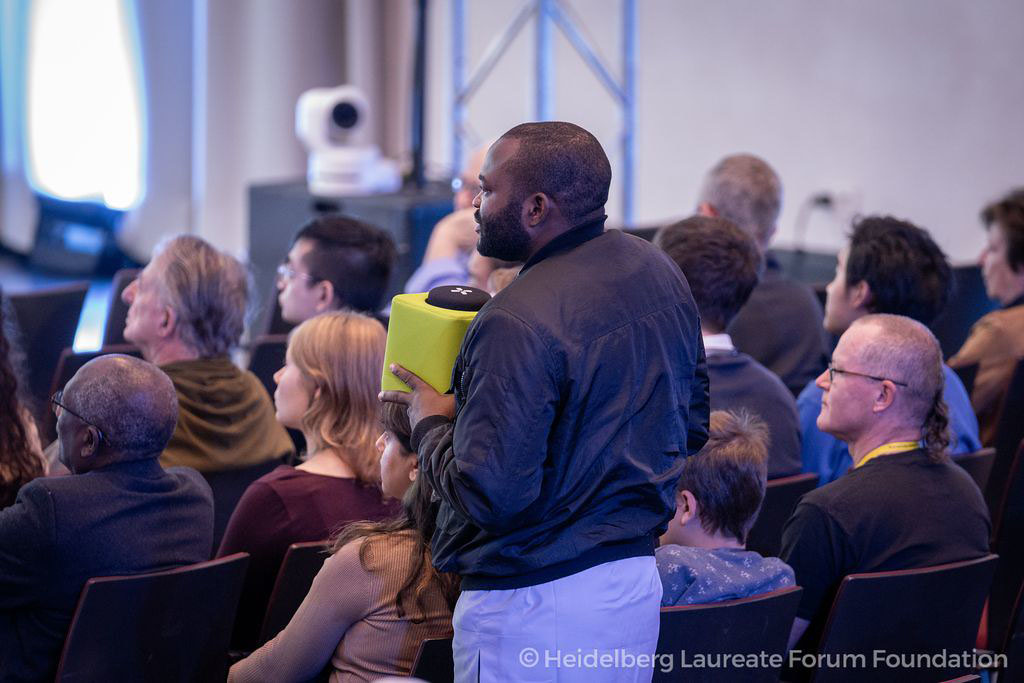
My advice to students is not to aspire to be like me, but to strive to be better than me. I am not the definition of the best; I work every day to improve myself. So, I encourage them to aim to surpass what I have achieved today because I am also continuously working to be a better version of myself tomorrow. In summary, they may follow my path, but go farther than I have gone, so they can achieve more than I have achieved.